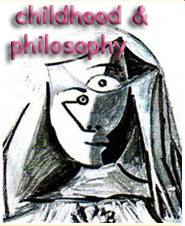touching the soul? exploring an alternative outlook for philosophical work with children and young people
DOI:
https://doi.org/10.12957/childphilo.2017.30424Keywords:
philosophy with children, critical thinkingphilosophical work with children, egological and non-egologial subject, grown-up-ness, risks, dogmatic image of thinkingAbstract
Philosophical work with children – which I take as an encompassing and slightly more descriptive phrase to cover a range of educational activities with children and young people in which philosophy plays a role – occupies a rather unique place in the contemporary curriculum and the modern school in many countries around the world. It not just provides a breath of fresh air, but also acts as a reminder that there is more to education than where policy makers and politicians keep wanting to push it, and also that education ought to be more than this. But the question I wish to ask is whether it is enough. In this paper, I I’ll share some of my observations about my experiences with philosophical work with children and young people, not to pass any judgement on this. Perhaps the best way to ‘read’ my argument is to see it as the sharing of a question – a question relevant for all educational projects, programmes, endeavours and practices, and hence also relevant for philosophical work with children and young people. The question I raise is how particular educational practices, settings and arrangements position the child in and in relation with the world. What kind of subject positions are, in other words, made available in and through particular arrangements and what kind of opportunities does this create for children and young people to ‘work’ on their existence as a grown-up, non-egological subject: in the world but not in the centre of the world.




